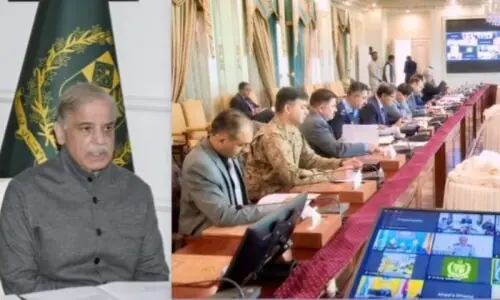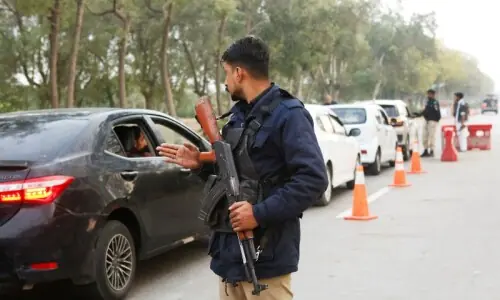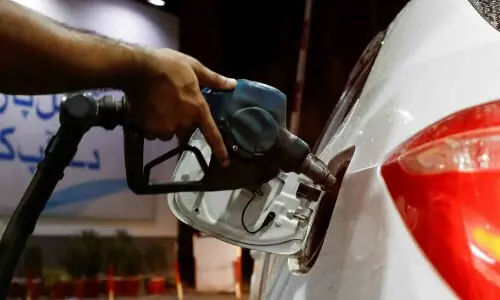ISLAMABAD: Prime Minister Nawaz Sharif said on Friday that Pakistan was playing a key role in the economic development of the South Asian region and to attain the dream of possible regional integration.
He was addressing the inaugural session of the eighth meeting of the finance ministers of South Asian Association for Regional Cooperation (Saarc) countries here at a hotel.
The prime minister said that Pakistan was looking forward to hosting the 19th Saarc Summit in Islamabad on Nov 9-10.
He said Pakistan believed in regional development through the platform of Saarc, as it was the way forward for peace in the region. His country, he said, would continue to play its part to fulfil hopes of the region’s people.
Mr Sharif said promoting welfare of the people of South Asia was the thinking behind the formation of Saarc. The region had abundant human and natural resources, with one-fifth of humanity and untapped opportunities for the development of the region, he added.
He said the social charter of the organisation was the real way forward and Pakistan would support all initiatives by Saarc in this regard. He urged greater role of the organisation in the health and education sectors.
The prime minister welcomed the delegates to Islamabad and hoped they would come up with useful recommendations to make the organisation more viable and effective.
He expressed the hope that the deliberations of the conference on customs, double taxation and economic and financial cooperation would give Saarc more meaning.
The finance secretaries of the Saarc member countries had met here on Thursday to finalise agenda for the ministerial conference. The event was attended by finance ministers, secretaries, heads of respective state banks, senior officials and diplomats.
PM Sharif said that Pakistan remained committed to jointly working with the Saarc member states to get the people of the region out of the clutches of poverty, illiteracy and other social ills.
He said Pakistan believed in a Saarc solution to regional issues by fully supporting all the initiatives taken by it. He said Pakistan also supported all the initiatives taken under Saarc. He said Pakistan had also been a strong advocate for stepping up regional efforts to ensure energy security for sharing of indigenous sources of energy.
He said Pakistan believed that road, rail and air connectivity was critical to the progress and prosperity of the region.
The prime minister said the Saarc organisation was formed three decades earlier with a commitment to promoting social welfare and improving quality of life and cultural development.
He said increasing interdependence and common concerns had led to the need of finding regional solutions. He said increasing connectivity, ease in communication, freer trade and finding innovative solutions to hunger, poverty and food security has helped the world to enhance regional and sub-regional cooperation.
Mr Sharif said progress has been made to counter the impact of climate change, spread of diseases, economic spill-over and social evils were being dealt by joint strategies at regional level.
He said South Asia was a region of vast opportunities endowed with abundant human and natural resources, having one-fifth of the humanity. Its untapped wealth and under-utilised resources provide opportunities for development and prosperity of the region, he added.
Pakistan’s success*
The prime minister shared Pakistan’s successful economic comeback and said his government had brought economic stability to the country.
“Our government is continuing with the reforms for strengthening the legal, regulatory and supervisory framework aimed at safeguarding stability.” He said the country’s reform strategy was aimed at enhancing ease of doing business and flow of foreign direct investments. He said upgrading by international financial institutions had brought the national economy on track.
He said performance of the banking sector was also steady with higher earnings and robust solvency. The trickle-down effect of macro-economic stability was benefitting the masses.
Published in Dawn, August 27th, 2016






























